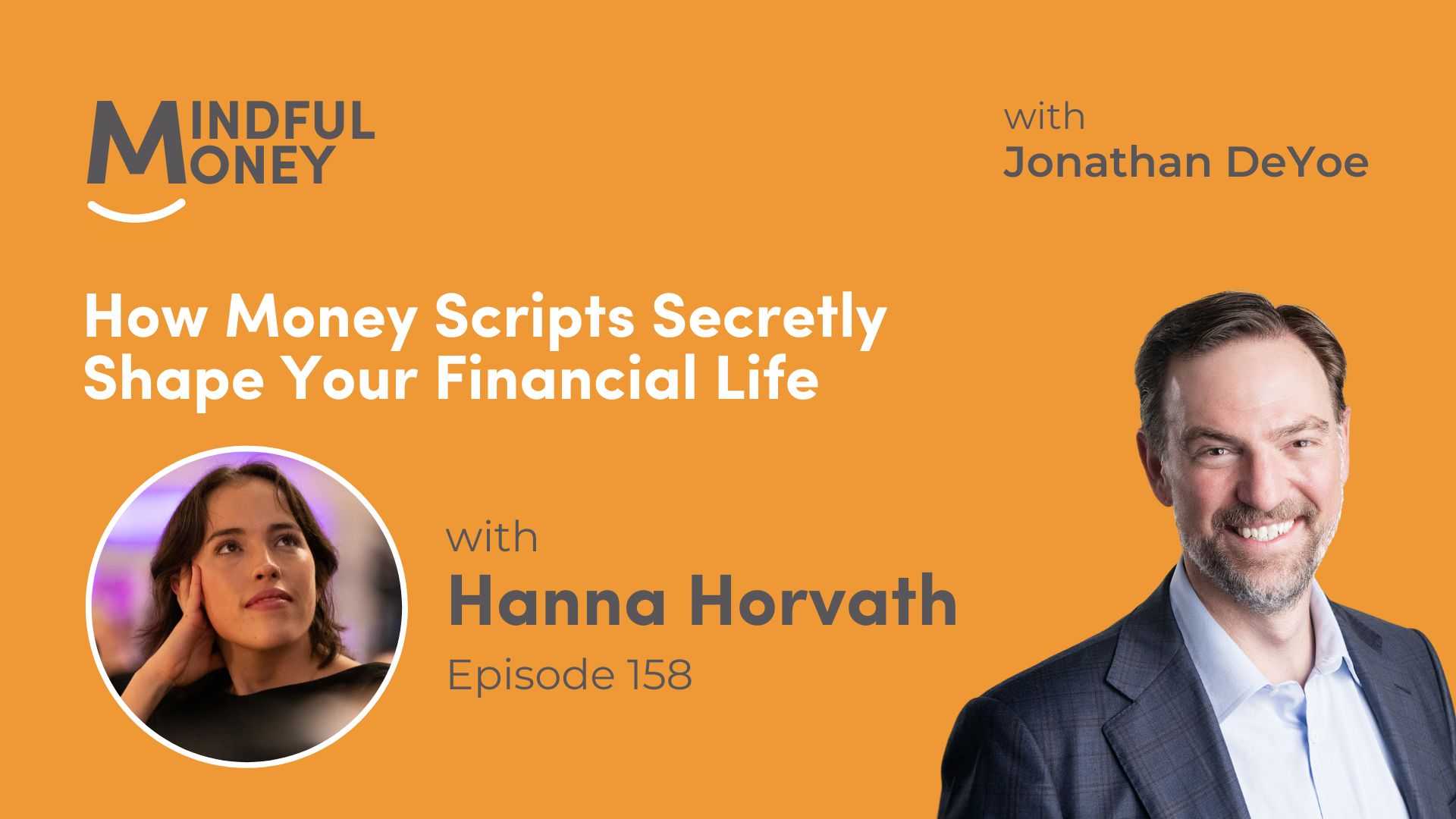“Investing” means you put something in to get something out. It could be that you’re putting in effort at the gym so you can improve your fitness. Or, you and your partner might invest time with a couple’s therapist so you can communicate better and enjoy an improved relationship. These are both investing.
In personal finance, we are talking specifically about financial investing – putting money in expecting to get the same or more money out in the future. At Mindful Money, we define investing as long-term.
If you’re setting money aside for spending in the short- or medium-term – that is saving. We like saving. We see it as critical to all good financial outcomes.
If you’re putting money to work expecting a return in the short- or intermediate-term – that is speculating. We don’t like speculating until you are both experienced with investing and you know you can afford to lose the speculation.
Saving and speculating are both different from investing. Saving must come before you invest, and speculating comes long after you start investing (if it comes at all).
Investing leads to improved outcomes across the many spheres of our lives. Financial investing leads to better financial outcomes. You absolutely must invest. But, before you invest, you should know the answer to these three questions:
Do I have an appropriately-funded emergency fund?
Have I paid off my high-interest debt?
Do I know the purpose of the funds I am investing?
Do I have an appropriately-funded emergency fund?
As mentioned above, saving comes before investing. The very first step of an adult financial life is learning how to save. The very first place you are saving is into your emergency fund.
In life, stuff goes wrong. When we are no longer reliant on our parents (or other family members) to meet our needs and something goes wrong, there are only two choices – our emergency fund savings, or debt.
Far too many people choose the latter. Banks and credit card companies are more than happy to bail you out of problems, both real (a car that dies leaving you stranded), or imagined (“I’ve worked really hard and deserve those $1200 Taylor Swift tickets”). They will, however expect their annual 13-29%+ interest for the privilege of using their money.
If you have a small emergency fund, then the small emergencies (a flat tire) are easily handled. If you have a larger emergency fund, then large emergencies (like 6 months out of work) seem smaller and more manageable.
It is important, before you start investing, to build up an appropriate emergency savings account that can protect you from things that go wrong. The older you are, the more people who rely on you, the more variable your income, the more complex your financial life… the larger your emergency fund needs to be.
“But Jonathan, I’m just going to invest my emergency fund, that way I can get a return on that money while I wait, nothing’s going to happen to me anyway.”
Don’t do that.
First, things happen every day. Things are happening all the time to people who don’t expect them to happen. We all get sick. We all have accidents. Accidents are unexpected –
that’s why they’re called accidents! Being prepared for things to go wrong is just smart… because they will.
Second, don’t invest your emergency fund. It needs to be liquid, easily accessible, cash. Emergencies are ALWAYS short-term needs. They are usually immediate needs, while investing is always a long-term process.
If you invest your emergency fund and that investment is down substantially (a normal part of the investing process), then it won’t work as your emergency fund. The time horizon of an emergency fund does not match the time horizon of invested funds.
Things go a lot better across your financial life if you can synchronize financial availability with financial need.
I write more about the emergency fund here.
Have I paid off my high-interest debt?
Ideally, you start by committing your savings to your emergency fund. However, life isn’t always ideal.
According to collegefinance.com, the average college student accumulates $3,280 in credit card debt before they graduate from college. The lowest interest rate on Nerdwallet’s 6 Excellent Student Credit Cards for 2023 list is 17.75%. In addition, according to the college board, of the 55% of students that graduated from either public or private universities in 2020, their average college debt load is $28,400.
This means the average student won’t be starting out at zero. They are starting out with around $200/month of payments (and this is assuming interest only). If we add principle payments to it (which we recommend), then there may not be a lot left to either build an emergency fund or make larger payments on these debts – both of which we need to do before we start investing.
This says nothing about the volume of debt that adults accumulate after they graduate and throughout their lives. It would be nice if we had higher incomes. It would be nice if we all managed our spending a little better. But we don’t. We have what we have, and we do what we can.
It doesn’t make any sense to invest expecting a long-term average return of 10% (or less) when we are paying 17% or more on our credit cards. Before we embark upon investing – as important as it is to our long-term security and well-being – we must pay off our high-interest debts.
You can take our Credit & Debt Mini-Course here and I’ve written more about eliminating high-interest debt here.
Do I know the purpose of the funds I am investing? What is the money to do?
I see three frameworks for “Why.” They range from the most obvious, “What are your goals?” … to the very deepest reasons for our pursuit of any goal.
The most obvious is discussion of our surface-level goals – the down payment on a house, summer vacation, college savings for the kids, retirement incomes for me and my partner, taking care of my parents, current gifts to charity, leaving something behind. There are many different goals that are considered within a financial planning or investing process.
I certainly don’t minimize the value of goals, but I also wonder about the “Why” behind the goals. The answer gives us the second framework. It begins to allow us the ability to prioritize and plan.
All the “goal” answers I have heard fit into one of these four categories: security, fun, responsibility, and legacy. Some examples might be:
- I’m saving for a vacation = Fun
- I save monthly into my 401(k) = Security
- I’m funding a 529 college savings plan = Responsibility
- I’m putting money into a Donor Advised Fund = Legacy
Not everyone’s reason for each goal will match everyone else’s. Some people will fund a 401(k) because their mother told them it was their responsibility to do so, others because they want security in retirement. When it comes to the reasons for our goals, there are obviously no right or wrong reasons. And, in many instances, one individual can have multiple reasons for a single goal, and those reasons may shift over time.
Early in my career, I used a “Values Ladder.” The idea was that in almost any discussion with a potential client, you would start with the coarsest of goals. They might say, “I want to open a college savings fund for my newborn.”
I would ask, “Why is this important to you?” And they would answer. And, like a 2-year old, I would ask, “Why… Why… Why?” This could take us through 1 or 2 of the core four categories.
Ultimately, if we were really talking about the stuff that was important to them, we would get to the final framework – the underlying reason that any of us does any planning or investing at all… Love.
I write a bit more about this here.
Obviously, I believe investing is critically important to your financial future. You absolutely need to do it. And, there are a few things you should ask yourself first.
Do I have an appropriately-funded emergency fund?
Have I paid off my high-interest debts?
Do I know the purpose for the funds I am investing?
I have often referred to these three as the pre-requisites to investing.
You can think about investing all you want. You can study it. You can subscribe to and read Barron’s religiously, if that’s your idea of a fun way to spend a Saturday (it was mine for a long time).
But, you should ask the above three questions before you start putting your funds into long-term investments.






